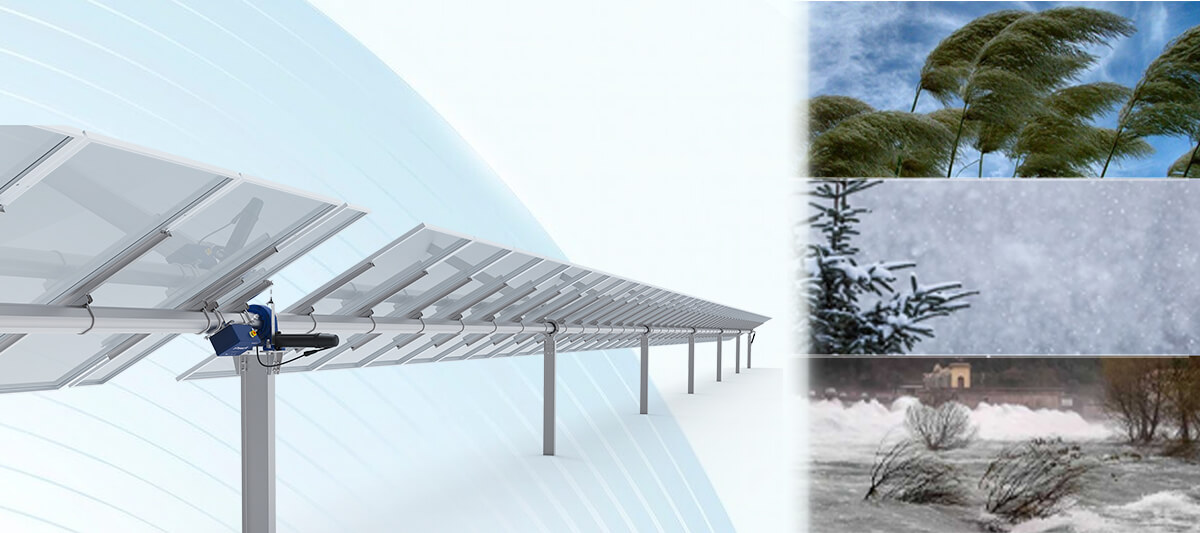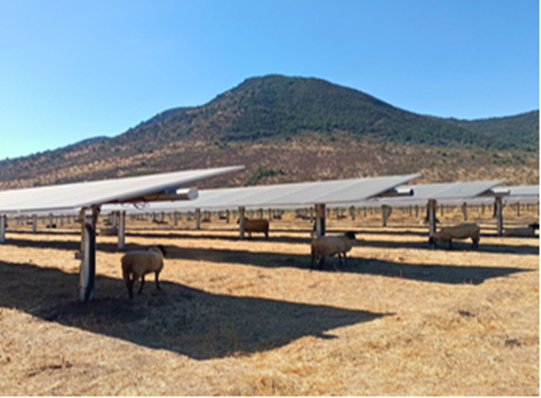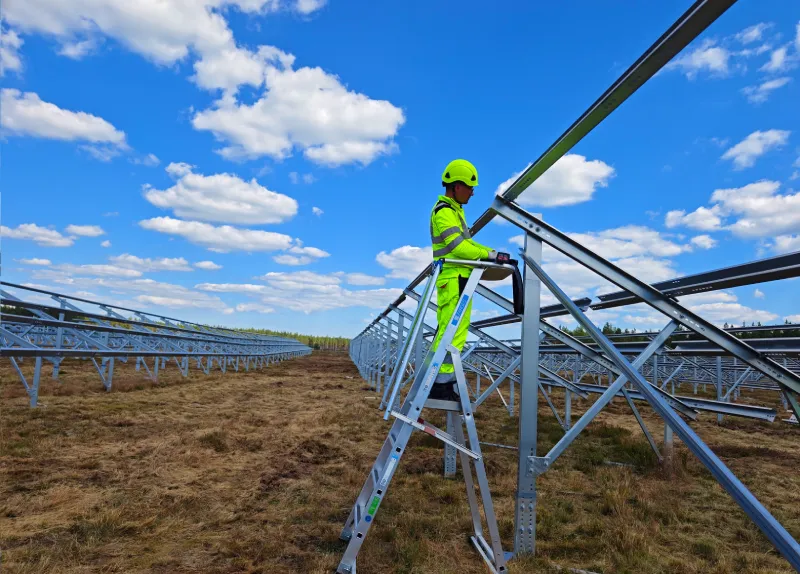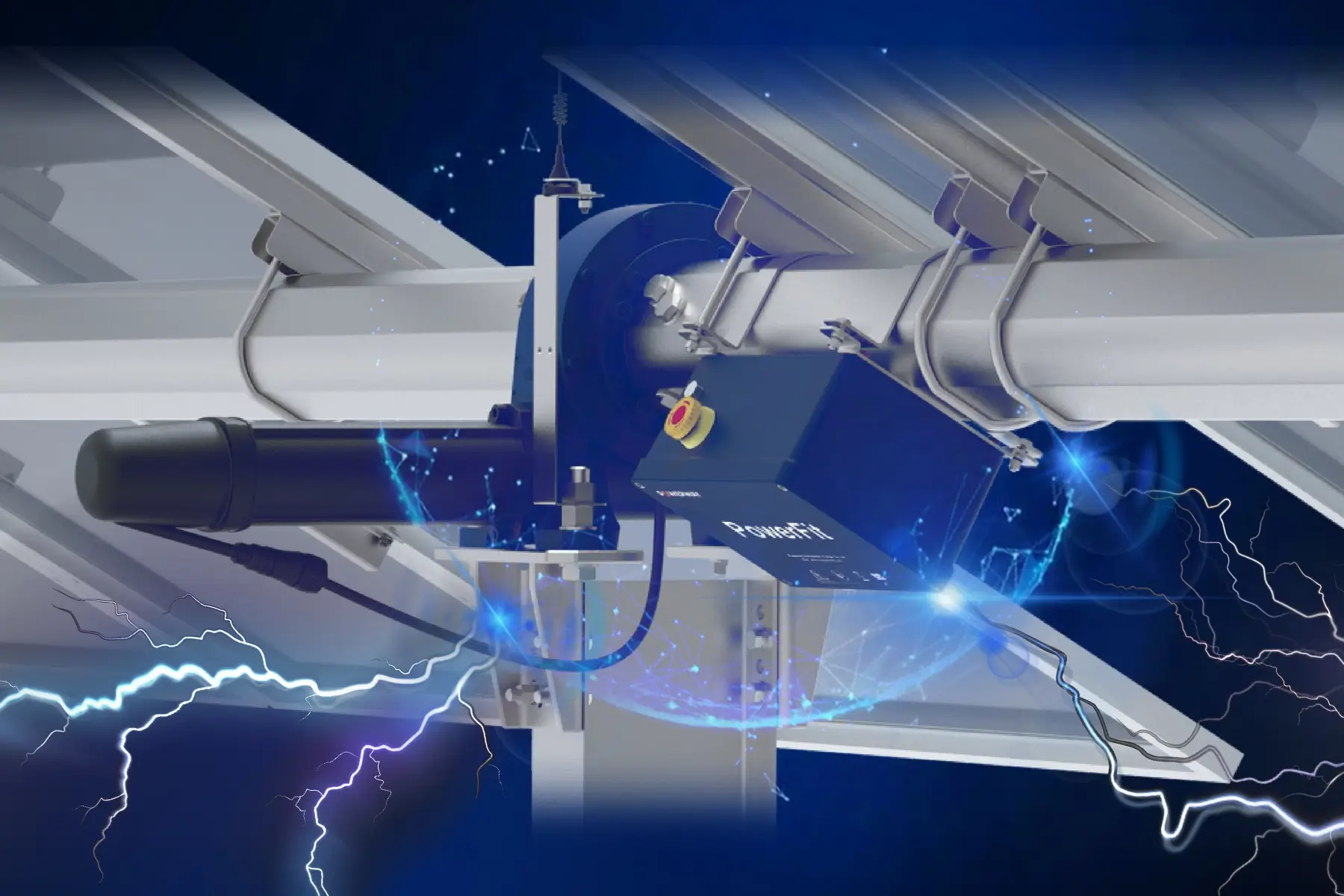In the global transition to green energy, extreme weather poses serious challenges.
Strong winds, heavy snow, floods, and occasional hail can threaten the structural safety and long-term costs of photovoltaic power stations. Powerway leverages its profound expertise in structural engineering and materials to deliver exceptionally robust support systems for photovoltaic projects around the world.
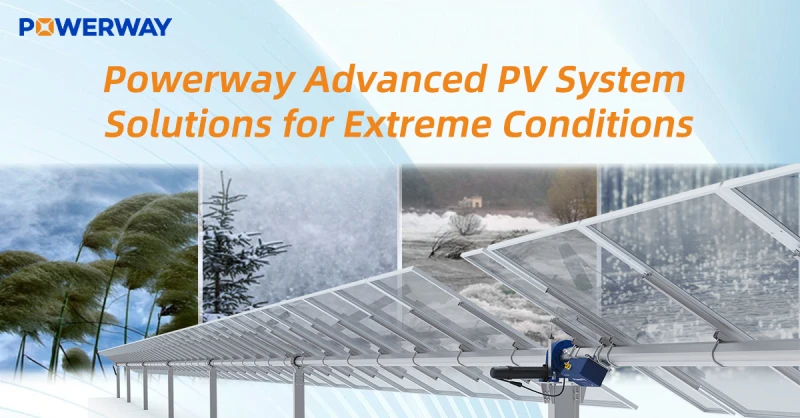
Extreme Weather Challenges
The photovoltaic bracket is the “skeleton” of a power station. Its stability directly affects the components’ integrity, power output, and overall asset life.
Extreme winds
Strong winds may cause resonance and instability in PV brackets. This can lead to weld or joint fractures, panel detachment, and even system failure. Leeward vortices are especially damaging when wind speeds reach or exceed 25 m/s.
Heavy snow
Excess snow load can deform or crush the brackets. It blocks sunlight and reduces power generation. Repeated freezing and thawing accelerate corrosion, making maintenance harder and increasing safety risks.
Flood situation
Flooding can cause foundation erosion, corrosion, and structural displacement of PV mounts, reducing stability and increasing the risk of collapse or system failure.
Hail weather
Hail can cause deformation, fatigue, and coating damage to PV mounting structures, weakening their stability and increasing operational safety risks over time.
Adapting to Extreme Weather: Wind, Snow, Flood and Hail Resistance
Multi-level Wind Protection
(1) Three-level intelligent response adapts protection based on wind speed for safe operation.
(2) Powerway’s tracking systems adjust to protective angles in under 3 minutes cuts storm damage risks, while 10% cost savings deliver economical wind protection.
(3) Powerway’s brackets and tracking systems are tested in wind tunnels by globally recognized institutions like CPP.
(4) Typhoon-resistant design withstands super typhoons (up to 89 m/s) with high corrosion and fatigue resistance for harsh coastal environments.
Snow resistance
(1) Trackers feature 6 snow removal modes. They adjust angles to shed snow actively and reduce long-term loading.
(2) Fixed brackets are reinforced with larger cross-sections and stronger joints to increase snow load tolerance and redundancy.
Flood resistance
Zones are controlled independently for fast, precise emergency response. High-precision flood sensing technology ensures stable, accurate operation.
Hail Protection
(1) Manual Remote Mode allows operators to control the system in real time via SCADA.
(2) Cloud API Mode provides up to 60 minutes of advance meteorological alerts for proactive protection.
(3) Sensor Mode features a high-sensitivity detection array with second-level (~10s) real-time response for instant action.
Forward-Looking Design: Always One Step Ahead
Extreme climates are becoming the norm. Relying on historical data is no longer enough.
Powerway’s self-developed PowerSmart One algorithm provides:
- Sensors for real-time monitoring of wind, snow load, strain, and system posture.
- Integration with intelligent O/M platforms for early warnings, mode switching, and maintenance scheduling.
- Long-term data feedback to continuously improve design accuracy for specific regions.
Conclusion: Stability that Safeguards Clean Energy
The growth of solar energy relies on support systems that are reliable, durable, and adaptable. Powerway PV systems are built to withstand strong winds, snow, floods and hail. With robust materials and intelligent maintenance strategies, they help projects achieve higher returns and longer service life.
Ready to make your PV project stronger and smarter?
Contact us today, and let's build a climate-ready PV solution tailored just for you.



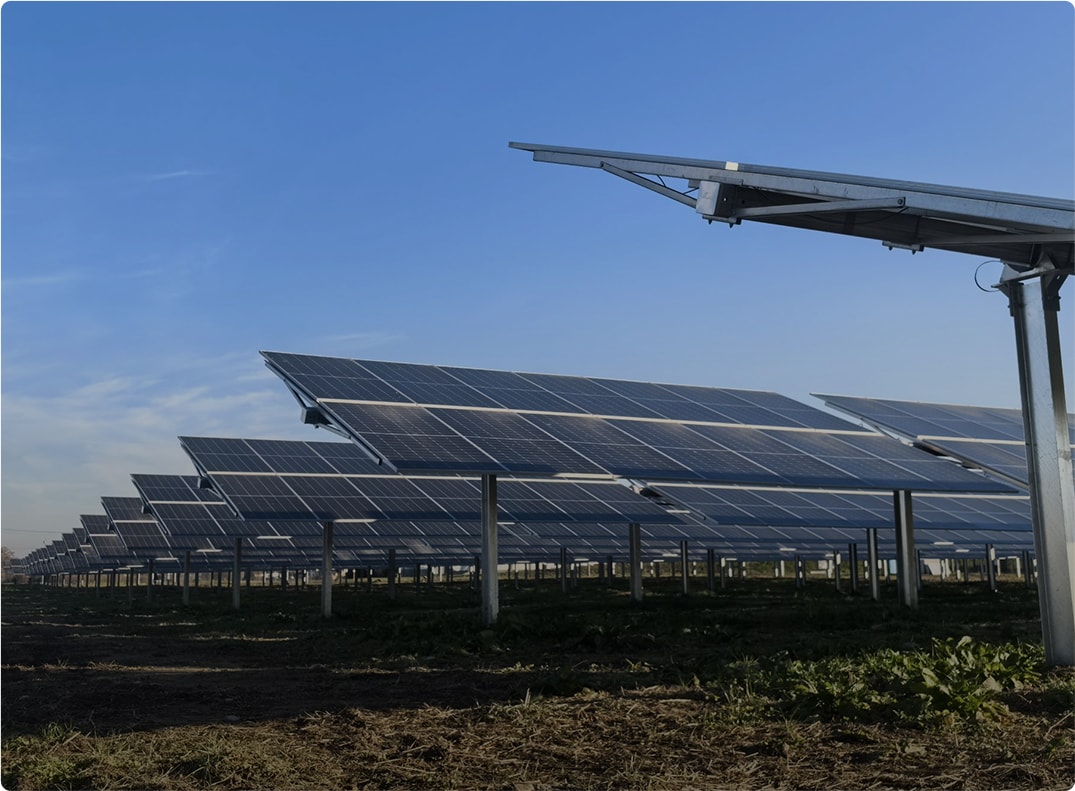
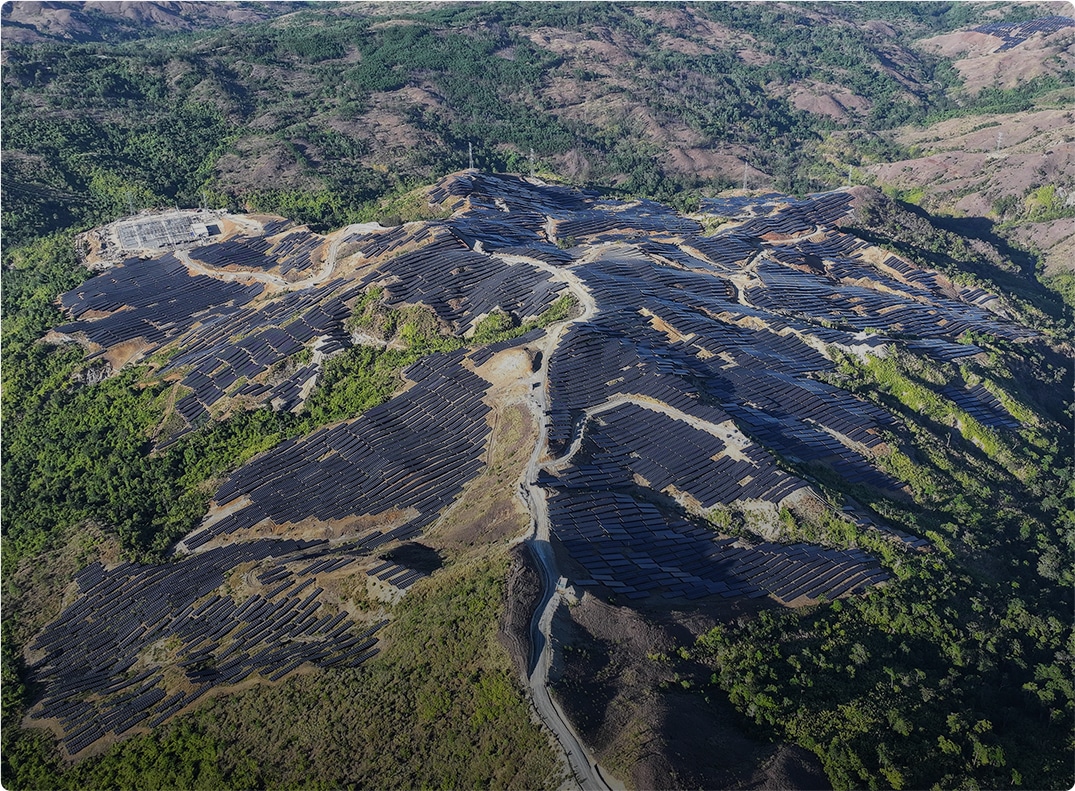
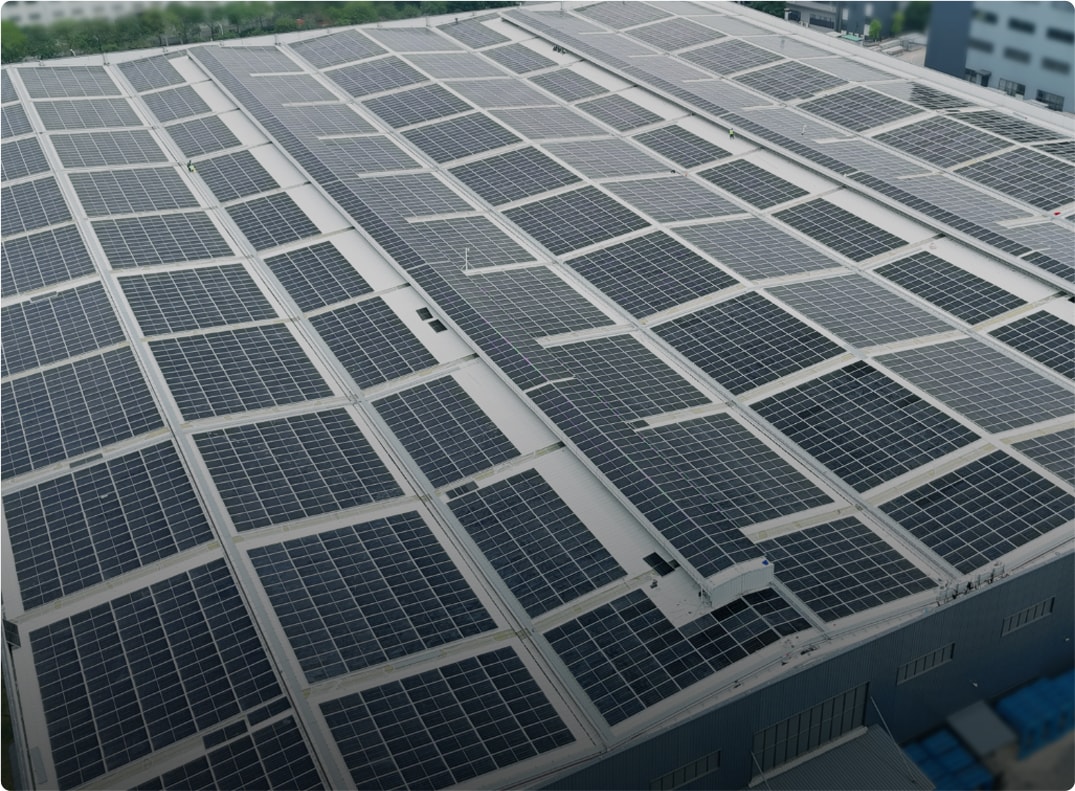
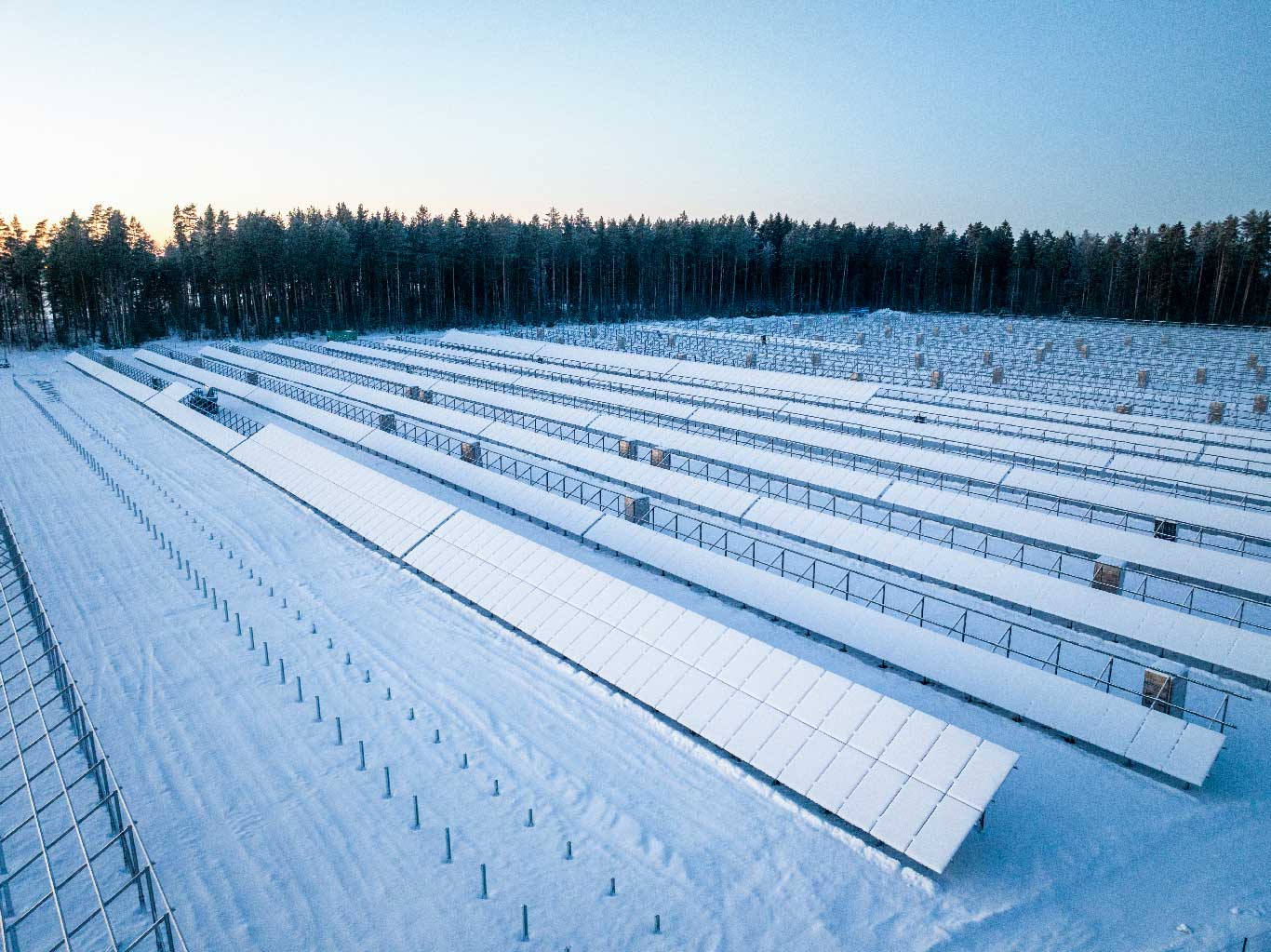
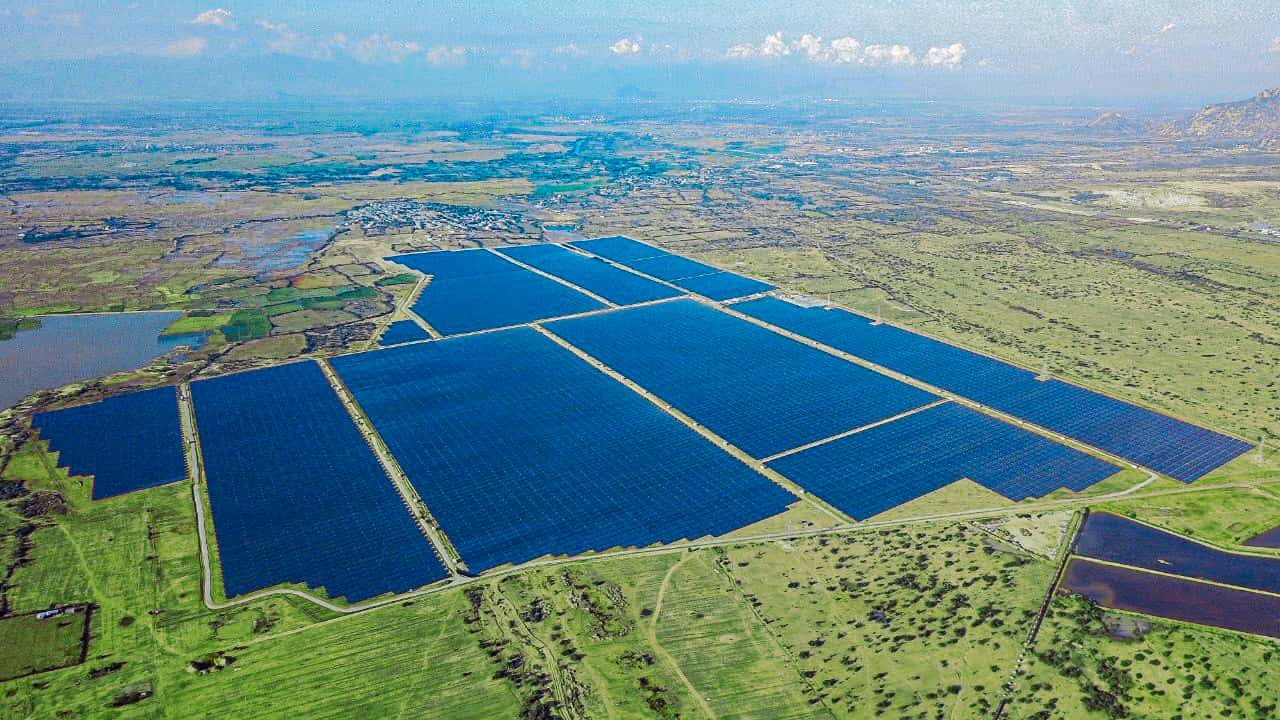
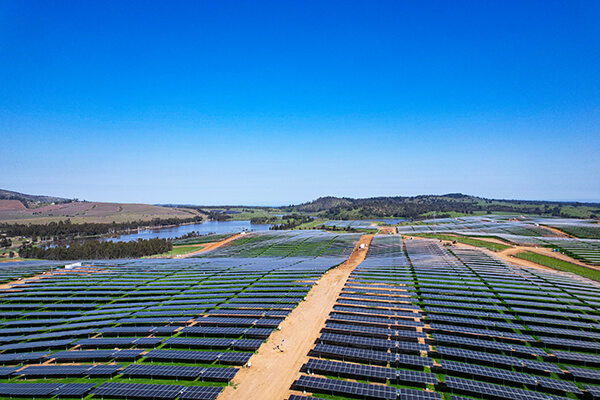
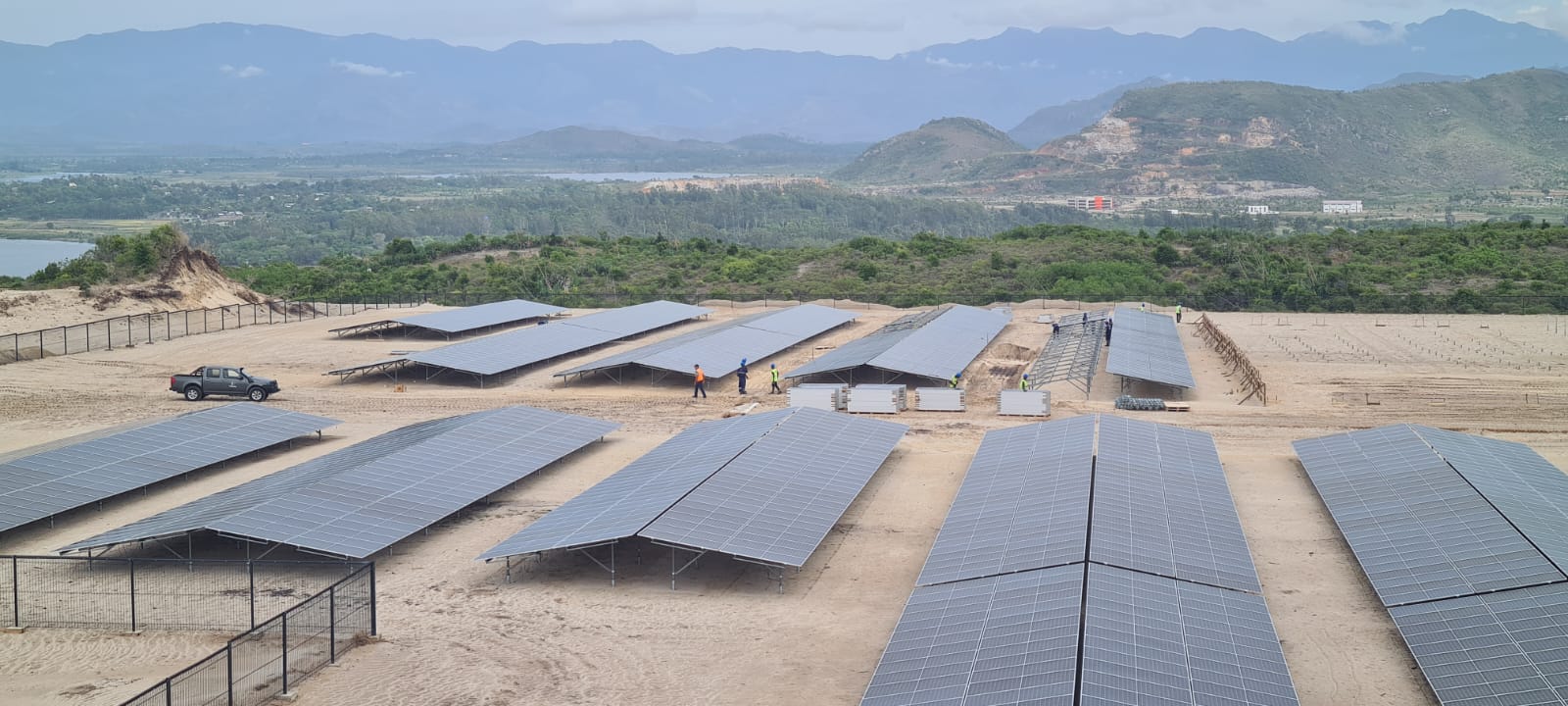
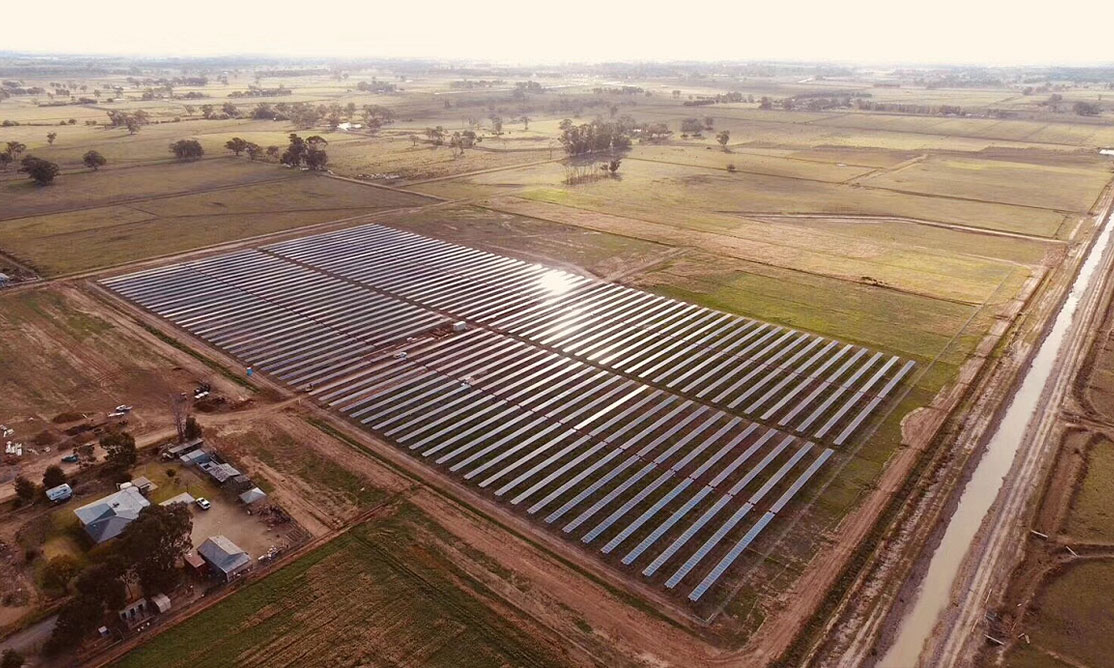


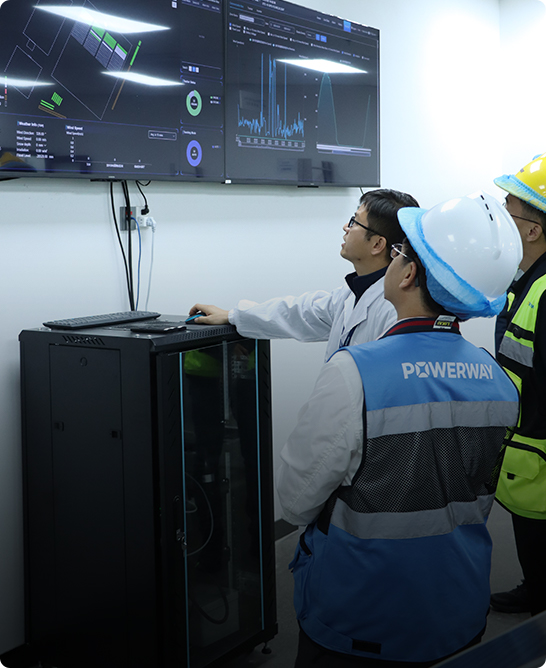

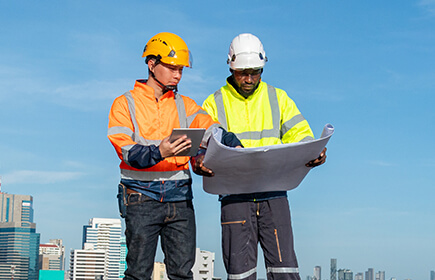
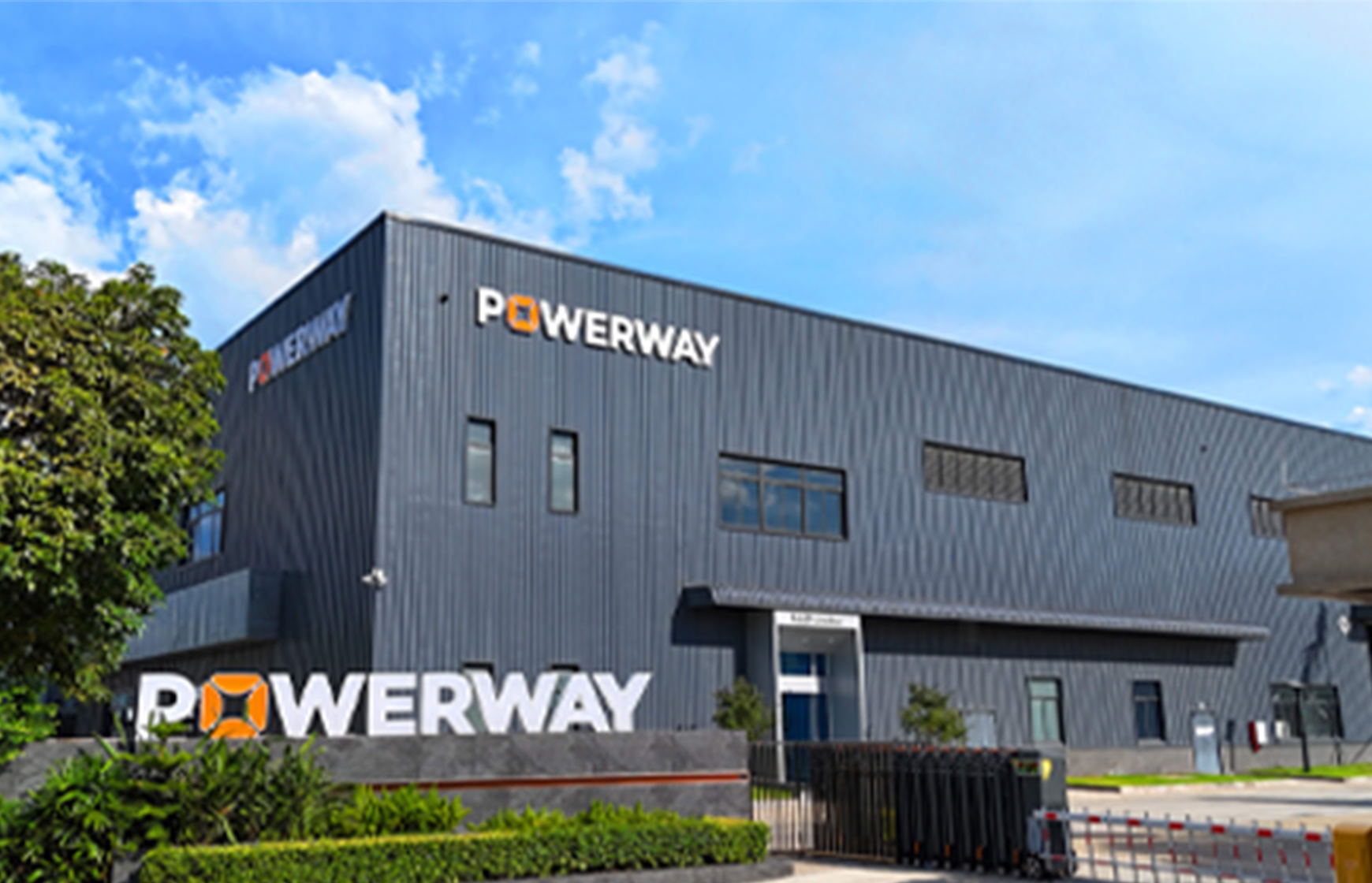
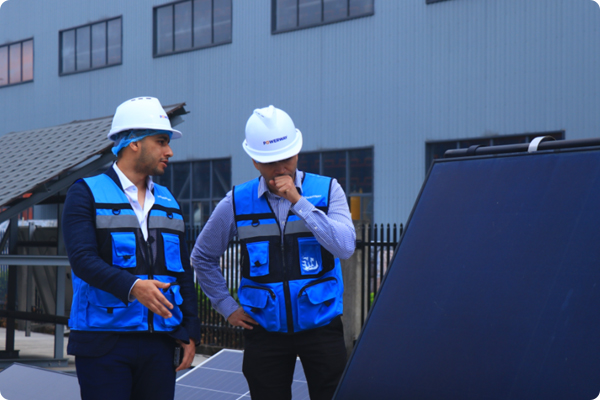







![[HOME]](/static/home/images/zimg62.svg)

